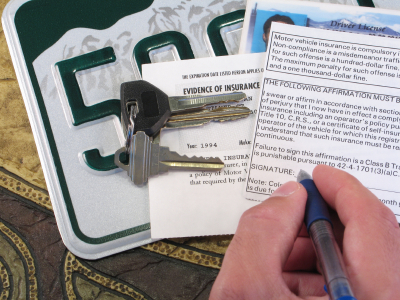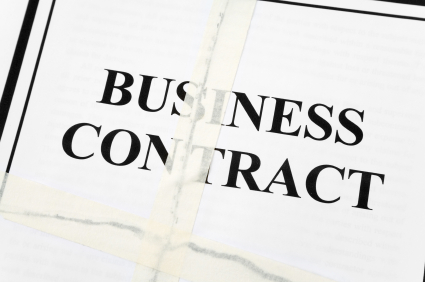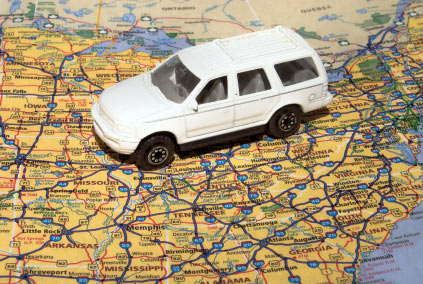Car Insurance Card for Proof of Insurance
Car insurance cards are the compact version of your insurance policy and should be kept in your vehicle at all times to provide proof that you have valid insurance.
A car insurance card is your verification of proof that you have insurance coverage in place on your vehicle and are carrying the minimum amount of insurance required by your state.
Insurance cards come in many different shapes and sizes and are needed for a wide array of reasons. But, one thing that is the same no matter what is that just like your driver’s license, you have to have it with you whenever you drive your vehicle.
What’s On an Insurance Card?
The front on an insurance card contains all of the important information that pertains to you and your coverage. It includes the name of the company that you are insured with, your vehicle information, the name of the person that holds the policy, policy number and your policy effective dates.
The back of the card can vary from company to company, but usually contains how to contact your insurance company with questions about your policy or how to file a claim. It could also list the steps that you need to go through in the event of accident, to keep everyone safe from any additional harm and to gather the information that you need for an insurance claim.
What Insurance Card?
Not every insurance company sends out an actual insurance card. The insurance card is simply proof of insurance and can take many forms; the phrase insurance card has just become a universal term for all small sized verifications of insurance.
Some companies provide two 4”x4” pieces of paper that are separated from the rest of the paperwork in the insurance packet. Others have a single insurance verification that is the same width as the rest of the insurance packet but only 1/3 the length. No matter the size, it is important to pull the verification out of the packet and keep it with you when you drive.
Why Do I Need a Car Insurance Card?
Your car insurance card is your proof that you have at least the minimum liability insurance that is required to be able to drive in your state. This verification is needed first and foremost in the case you are pulled over for a traffic violation. The officer that pulls you over is also going to check that you are carrying the minimum insurance on your vehicle or you will be getting a second ticket.
Insurance cards provide the needed information that needs to be exchanged with the other party in the case of a case accident. They are also required when you want to drive a vehicle that is not yours, such as test driving a new vehicle from a car lot or if you are renting a car.
Where Should I Keep My Card?
A good number of people keep their insurance card in their wallet thinking that this is the best place to put it as they always will have it with them. But what happens if you have multiple drivers in the house or you allow someone else to drive your vehicle?
Insurance coverage follows the vehicle you are insuring, not the driver so it is best to actually keep your insurance car with the vehicle.





